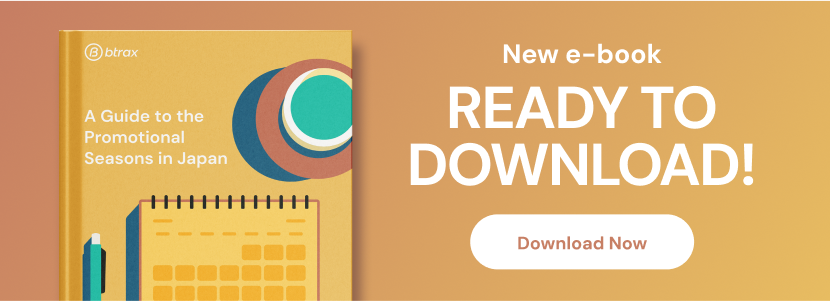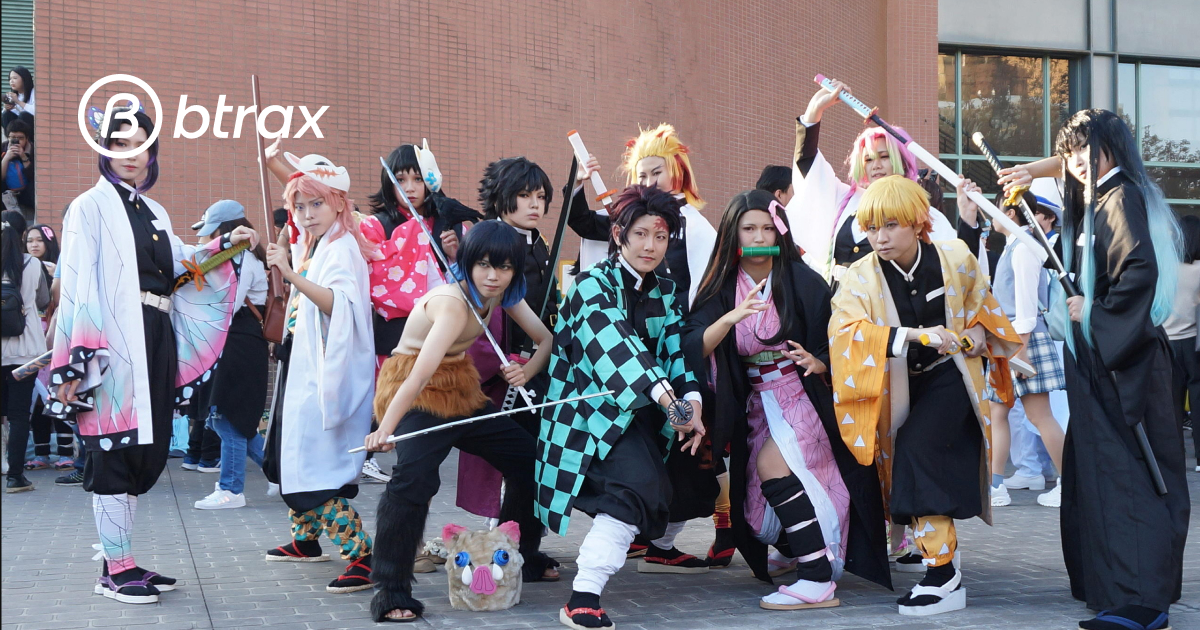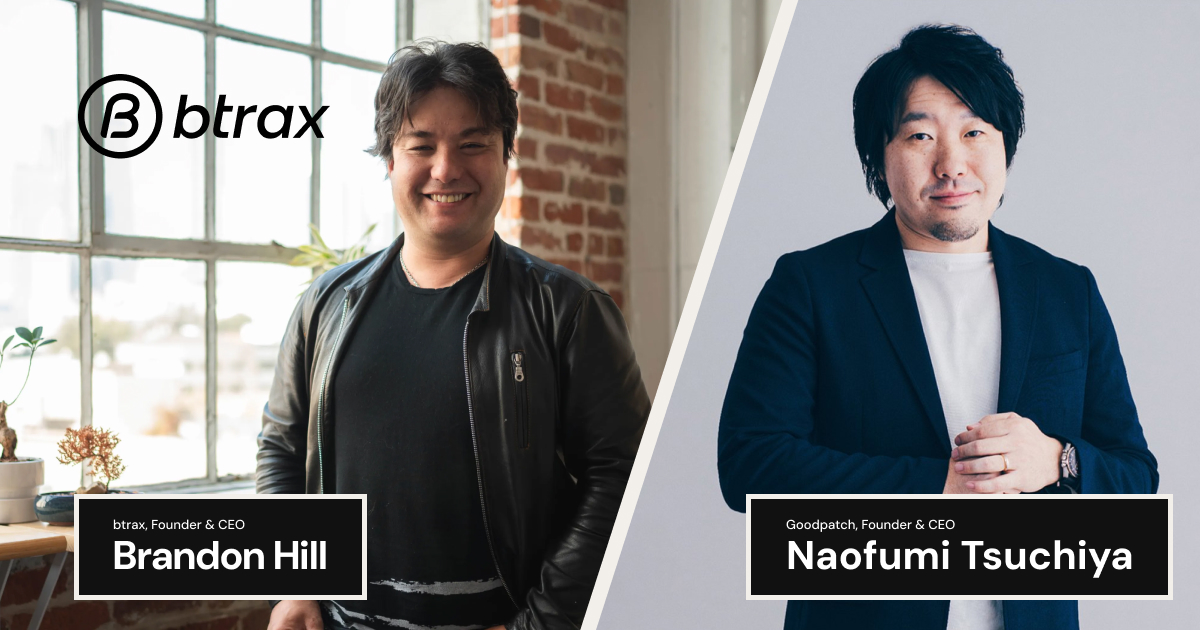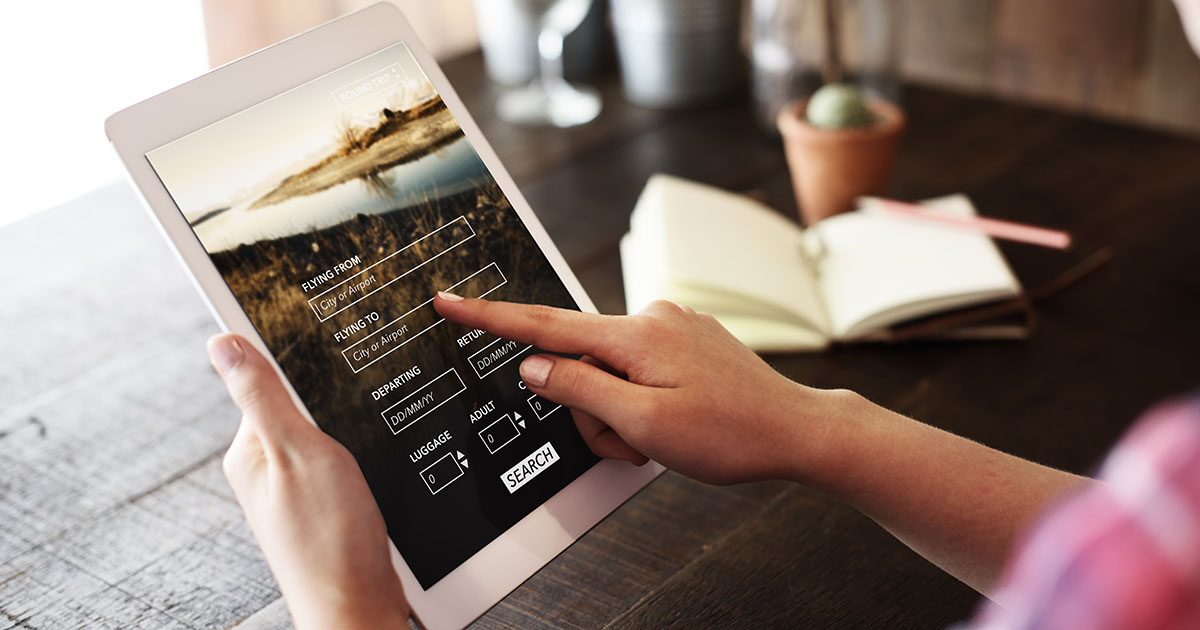
Btrax Design Company > Freshtrax > How Travel Data...
How Travel Data Co-op, ADARA, Expanded Business to Japan and Built Relationships With Public Sectors
As the venue for the quickly approaching Rugby World Cup (RWC) in September 2019 and 2020 Olympic Games, Japan is gearing up for a great influx of inbound travelers. Companies and regional governments alike are hoping to attract tourists, and ADARA, a B2B global travel data co-op, helps them do so by providing a holistic understanding of travel consumers’ behavior. ADARA collects data about travelers by partnering with well-known travel brands and then creates a comprehensive view of the traveler: where they come from, where they’re going, with whom, how much they spend, and more.
Businesses overseas may be interested in entering the Japanese market at this opportune time, so we sat down with Junko (June) Morishita, the Commercial Director of ADARA in Japan, to hear about the company’s experience doing business in Japan for almost four years and the lessons they have learned. We covered topics such as expansion, localization, company culture, and customer relations.
Expanding business to Japan
Q: btrax was lucky enough to help ADARA’s market launch event in 2017. Why did ADARA decide to enter the Japanese market at that time?
A: Our headquarters are based in Palo Alto, California in the U.S. There are 200 employees and 20 offices around the globe at the moment. Back in 2016, we opened up an office in Singapore in order to enter the Asian market. We eventually expanded to Japan, Hong Kong, and Sydney to serve specific regions of the Asia-Pacific. In the past 10 years, ADARA has grown rapidly.
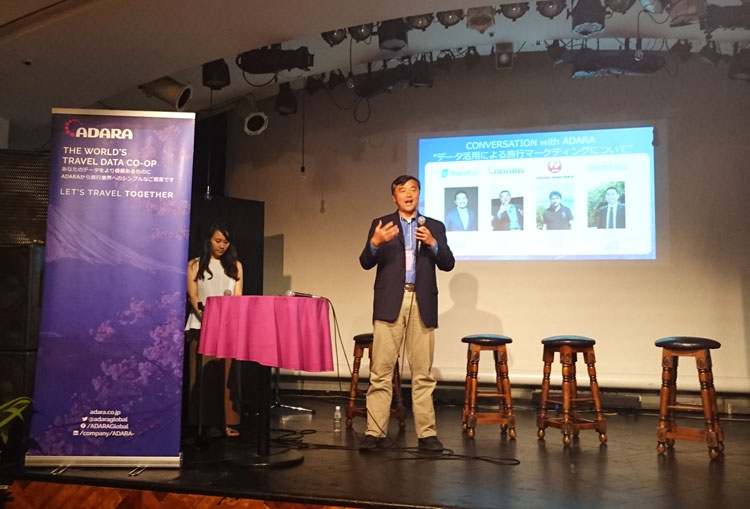
ADARA’s launch event in Japan in 2017
Q: Since ADARA already has offices all around the world, was the transition into the Japanese market smooth?
A: There were some initial struggles, especially regarding the language barrier. We are an American-based company with offices in Europe and APAC (Asia Pacific), so the common language is English. We have to translate everything to Japanese—sales reports, marketing documents, and websites. To overcome this challenge, we hired a bilingual staff here and also at headquarters. Beyond working internally and with businesses, we also work closely with the public sector in Japan: the Japanese government, local governments, and their tourism boards. They speak Japanese, but local people often don’t know the jargon of the digital and travel arenas, so I have to translate from specialized English to Japanese that can be understood by people outside the field, which is really challenging.
Q: ADARA is headquartered in the U.S., a country with a very different culture from Japan. As such, did you need to change the business strategy in Japan?
A: We try to follow what the U.S. does, but we localize it to match the appropriate customs, tone, manners, and business practices in Japan. We’re trying to grow the customer base and expand new business areas, so we have to respect what the Japanese customer is looking for. As business grows in Japan, we expand teams and try to change strategy to meet local business needs, especially on the government side. Japan is one of the top key markets to focus on, especially in the tourism space.
Q: When ADARA first came to Japan, how did you approach the first customers?
A: Initially, I used my own network from previous work. I’ve been in the ad and marketing industry for many years, so I just reached out to many travel and digital marketing agencies and did some press reviews too. I started building and creating leads. During the second year, we hired a person to continue expanding the opportunities in the industry and in other spaces like the public sector.
Localizing the business
Q: What are the difficulties that arise when explaining ADARA to local people?
A: Most people see me as an alien coming from another planet because of the technology I introduce and the technical terms I use. But they are always keen to learn new things. In order to make sure they understand, when I speak I try not to use katakana (a Japanese syllabary used for loanwords) words like “inpureshon” (impression) or “kurikku” (click). I did an ADARA seminar last week talking about digital marketing and our measurement solutions. They asked things like “What is a pixel?” and “What is tracking?” I say it’s like fishing. I put out a lot of terms and concepts and see what types of questions they ask. From that, I gather information, but first I have to feed. You have to understand what kind of people visit your website, what kind of people see your advertisements. That’s how we start working in the digital space. The challenge is trying to educate people about the digital space. But it’s part of my role to make sure they understand what they need to do, what the options are, and the role that ADARA can play.
Q: You said that ADARA often works with local governments. They usually don’t own customer data, so ADARA’s services must be very beneficial to them for attracting travelers. Was it easy to introduce your services to them?
A: When I started at ADARA four years ago, I had to make phone calls and send emails to reach out to tourism boards. But two years ago, one of our largest partners, the Japan National Tourism Organization, signed up with ADARA to use our measuring tools for impact. Since then, industries started showing interest in what ADARA can do. Now, people will reach out to me over email or phone call. Even people between neighborhoods and prefectures talk and exchange ideas. Last week, I was in Kyushu, and I met a couple people there at the seminars. The next day I got a call from tourism marketers sitting in the next prefecture over asking for more information about ADARA.
Q: In all your experience working with tourism boards, travel agencies, and others, what is the number one lesson you have learned about Japanese customers?
A: Travel consumers use the Internet to search for their next destination, see how much it will cost, and more. And during their travels, they use their mobile phones—they go on Facebook and post photos to Instagram, sharing their experiences with friends. That means there are so many touchpoints in the digital space, but compared to advanced markets like the Pacific or the U.S., the Japan travel industry is a little bit behind in that area. As we see a large number of inbound travelers in this market for the upcoming Rugby World Cup and even for the Olympic Games next year, people in the industry try to find the best way beyond what they have already done before to attract those travelers to their respective destinations. Making pamphlets, brochures, and guide books and putting them at the station doesn’t work anymore. From the marketer’s perspective, we need to think about how to reach the right person at the right time. That’s in our solution.
Q: What is the most important aspect when integrating into the Japanese market?
A: The most important thing is to listen to the local people, to show respect to a different culture—not only Japanese culture, but Japanese business culture as well. We’re trying to be creative and align with local needs.
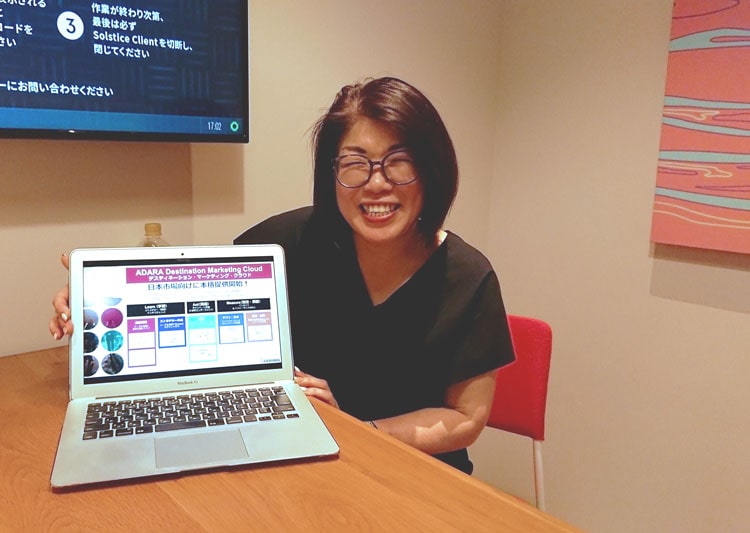
Building trust in Japan
Q: How did ADARA gain the trust of its customers?
A: First of all, we provide transparency to the partner who is providing us data. When they give us data, we tell them how we use it, and they choose who can use it. We keep all data that we receive from partners safe in separate partitions. That’s why we’re able to work with airlines and hotel chains. They trust us.
Gearing up for Rugby World Cup and Olympic Games
Q: You mentioned that the Rugby World Cup and the 2020 Olympic Games are coming up. About 33% of the 1.8 million available RWC 2019 tickets are expected to be held by foreigners and Japan hopes to attract 20 million tourists by the 2020 Olympics. With such a big business opportunity for travel companies approaching, has there been an increase in customers interested in ADARA as those events grow closer?
A: Yes. ADARA is building up the travel database by partnering with over 200 global travel brands: airlines, hotel chains, and online travel agencies. They participate in our data co-op and share their consumer data. Based on the data, we can identify who is coming to Japan—on what terms—and where they are trying to go within Japan. We can understand how many people they are traveling with and how much they are spending there using data from travel sites. Local destination marketers especially want to promote their destinations. If those marketers see that people are coming to Japan for the Rugby World Cup, they want to encourage those people to explore their destination’s attractions.
The team in Japan and company culture
Q: How would you describe the culture at ADARA’s Japan office? Is it similar to that of the head office or does it follow a traditional Japanese business structure?
A: I think it’s somewhere in between. Most people in the Japan office used to work for U.S. companies, so they became used to working in that environment and dealing with the headquarters in the U.S. Communication-wise we’re pretty much good. I think that as a travel company, people who work at ADARA have a passion for travel. We’re always asking each other questions like “Where will you travel next?” and “What places are on your bucket list?” even over phone calls. That’s how we share our lives and experiences with each other. It’s not unique, but it’s very ADARA.
Q: Do you think the company culture helps the Japan office communicate well internally?
A: Yes, I think so. Like other Japanese companies, we are becoming more flexible. Globally, ADARA has unlimited Paid Time Off and the company allows us to work remotely. We respect each other’s lives. Actually, two women in our office are moms. They have two kids, so they have to take care of them too. Sometimes they have to deal with some school stuff, and they will work from home. We respect that kind of work environment. For me, I like traveling, so I will take a vacation, but I will be online at a cafe working remotely.
Q: What does the relationship and collaboration between the Japan office and HQ look like?
A: We follow the basic guidelines provided by headquarters, but we try to distinguish the kind of language and strategies we use. For example, in the U.S., presentation decks typically have lots of images and little text. But here in Japan, even while the presenter is speaking, people pay attention to the text on the slides. We share the presentation decks with clients by email and they read the slides carefully. That’s why the Japan office has to spend more time describing to headquarters what works in Japan and what will be accepted by clients. (Editor’s note: Japanese people value written documents over speeches in presentations. ADARA shares presentation decks with clients before a meeting so its clients can fully comprehend the content, making their business discussion smooth and efficient. This is a common business practice in the Japanese business world, especially in conservative industries.) The headquarters started listening to us and understanding that we need to show that respect to be successful in Japan.
The biggest takeaway
Q: Based on your experience, is there any insight you would give to the companies wanting to join the Japanese market?
A: The most important thing is to find a person who is a local expert and learn from them. Listen. They understand that everything is done differently in Japan. In fact, this is our key message: learn, act, measure and modify. Otherwise, you won’t know what works well. It’s the same for destination marketers, private companies, and design companies. It’s fundamental.
It’s very universal, but especially for this market, you need to learn about the people. I don’t like it when people say “Japan is so unique.” It’s not unique. We just do things differently. And we really respect each other.
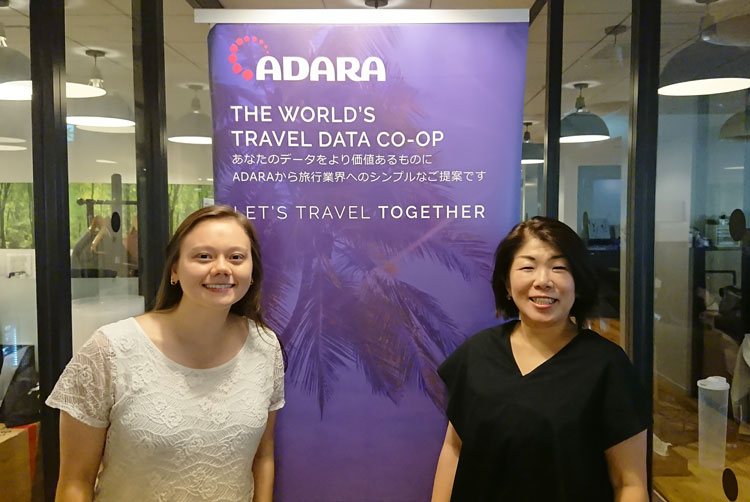
We look forward to seeing ADARA continue to grow as a company as a result of the careful attention they pay in understanding the local market. We sincerely thank and appreciate Ms. Morishita for taking time out of her busy schedule to talk about ADARA and her insights regarding the Japanese market.
#####
Interested in doing business in Japan? Our bilingual team of experts in the Japanese market wants to help you. Check out our services to see if there’s something we can do for you. If you found this article helpful, sign up for our newsletter or contact us! We look forward to hearing from you!
Our new E-Book is ready to download!
We’re thrilled to announce the release of our newest e-book: “A Guide to the Promotional Seasons in Japan.”
Featuring insights and examples of successful marketing campaigns that leverage Japan’s distinct seasons to market their products to thrive in the Japanese market!

